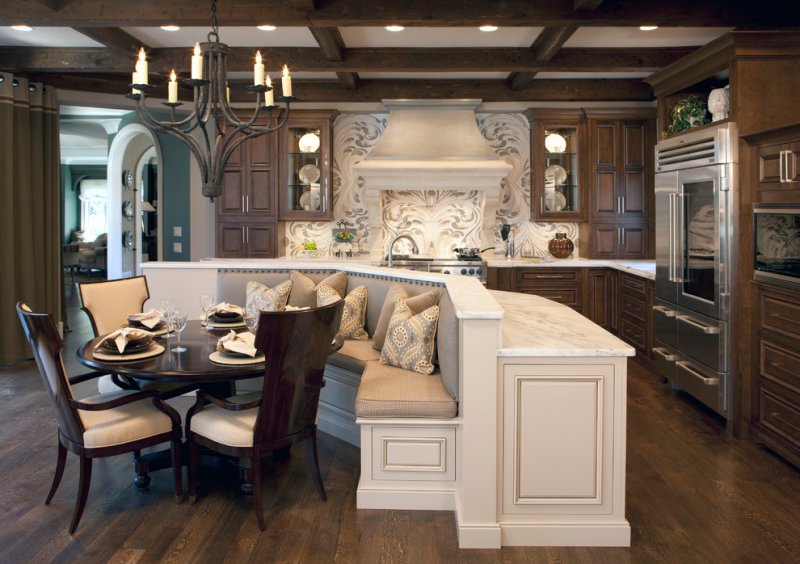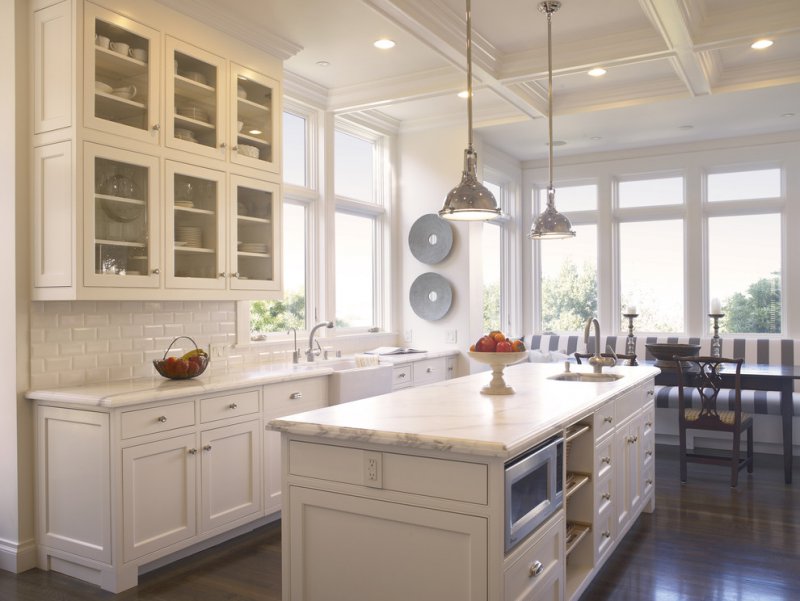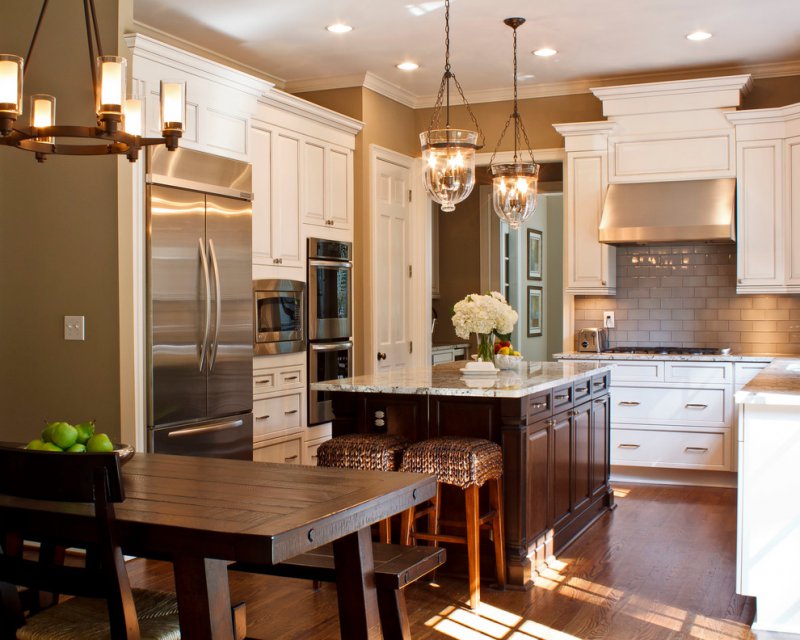Sun, Nov 4, 2018
Article may contain affiliate links. As an Amazon Associate I earn from qualifying purchases.
 Photo via Insidesign
Photo via Insidesign
Marble and granite are quite similar kitchen or bathroom countertop materials, because they are both natural stones. However, their strengths and weaknesses differ quite considerably.
Both marble and granite are classified as metamorphic stones, but granite comes from deeper within the earth and is used to a higher degree of heat.
Marble is typically found in mountainous regions, and is characterized by a crystalline nature that can be polished for a beautiful finish. Granite and marble are naturally beautiful stone materials that are patterned with veins of mineral deposits, and each slab is unique.
Now we will compare the two types of stone in terms of their countertop advantages and disadvantages.
Marble Countertops Pros and Cons
 Photo via Dijeau Poage Construction
Photo via Dijeau Poage Construction
Marble is often referred to as historic favorite in kitchens that adds unmatchable charm and character to any kind of design. It is a tough material that is not prone to dents or chips, and is also heat resistant; a useful characteristic in any kitchen.
Marble is available in several natural colors, such as hues of green, black, pink and gray, and can have dark or more subtle patterning. It can also have different types of finishes, such as a matte finish, polished finish or leather finish.
On the down side, marble is porous and therefore needs to be sealed, and also scratches quite easily. It can be sensitive to acidic solutions and end up with an etching on its surface. The whiter colors are less prone to etching than the darker colors. Marble needs to be carefully maintained in order to keep up its perfect appearance.
Granite Countertops Pros and Cons
 Photo via Great Spaces
Photo via Great Spaces
Granite is often the countertop material of choice for those who want a high-end look for their homes. It is just as beautiful as marble and often makes an attractive and unique centerpiece.
Due to the fact that granite comes from the depths of the earth, it is highly resistant to heat. This makes it ideal for the kitchen.
Although a very heavy object dropped can cause a chip or crack, granite is strong, and not likely to dent or scratch. It is also stain-resistant as long as it has been effectively sealed. Granite is a porous type of stone that requires some maintenance in terms of re-sealing.
Although it cannot offer the wide range of colors that synthetic materials can, the natural beauty produced by its veins is unrivalled.
Cost Comparison: Marble vs Granite Prices
Marble prices can vary between $125 and $250 per square foot, and may depend greatly upon the demand and availability of the material. Some shades and patterns may be more readily available, and therefore less expensive, or for a small job, you can find leftovers from other installations that are less pricey. Factors that determine price also include the thickness of the slab and the installation complexity.
Granite is similar in price, ranging between $100 and $250 per square foot. There are various grades available, including designer, premium, builders and closeout/clearance grades. The type you choose will definitely affect the price you pay.
Conclusion
It can be difficult to choose between marble and granite because they are so similar in their characteristics. The main thing to consider is the degree of maintenance required. Marble definitely needs quick cleaning to prevent stains and surfaces should be protected from scratches, whereas granite is more stain-resistant and less susceptible to scratching.
Both types of countertops will need to be re-sealed from time to time, but marble more often than granite. Overall, either type of material is highly regarded in terms of adding value to a home’s most important rooms.
READ NEXT
